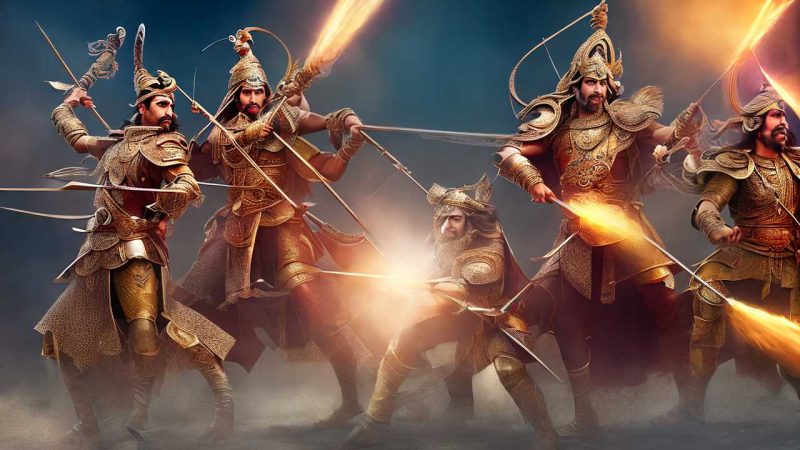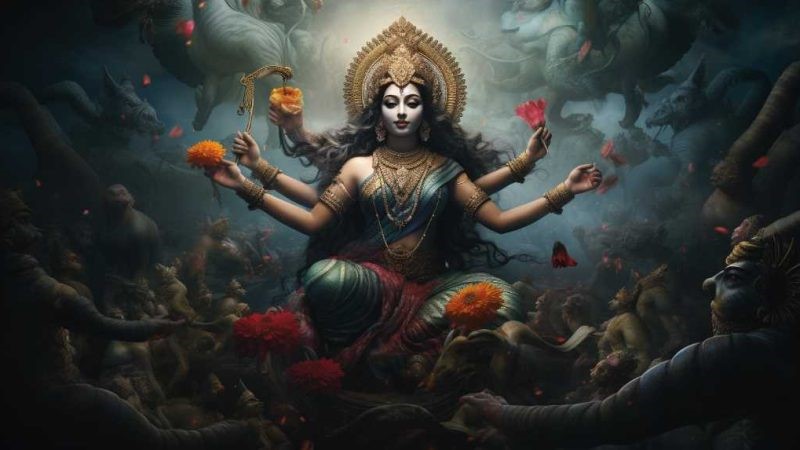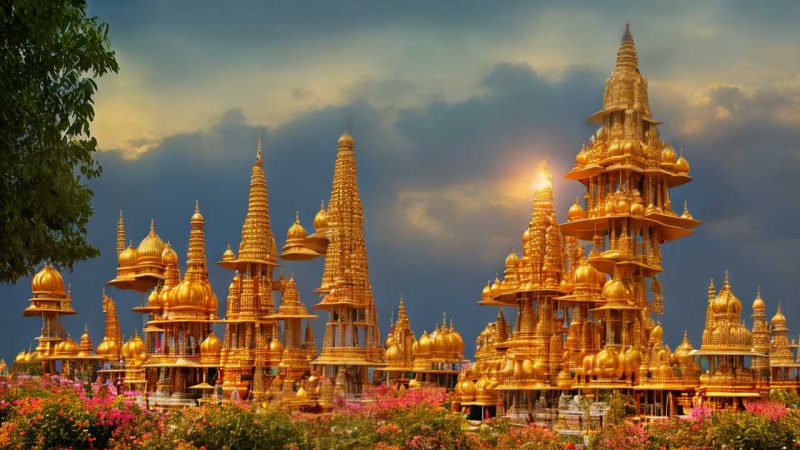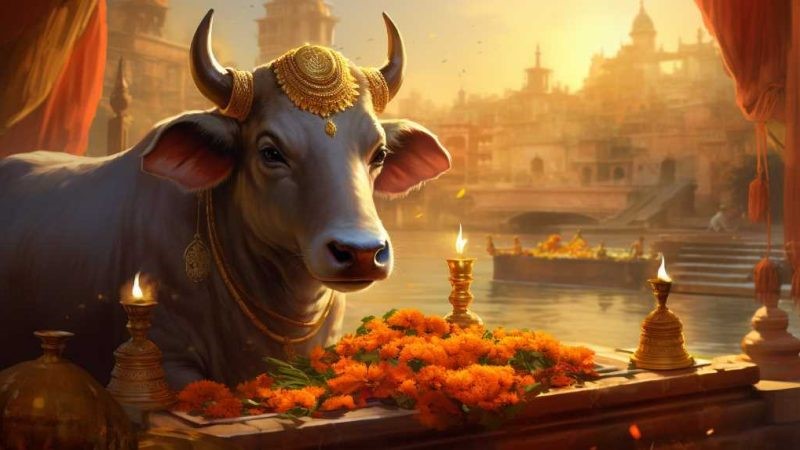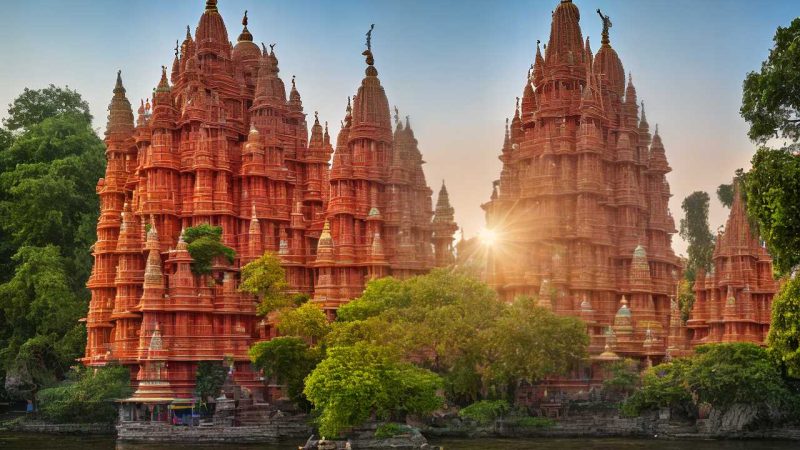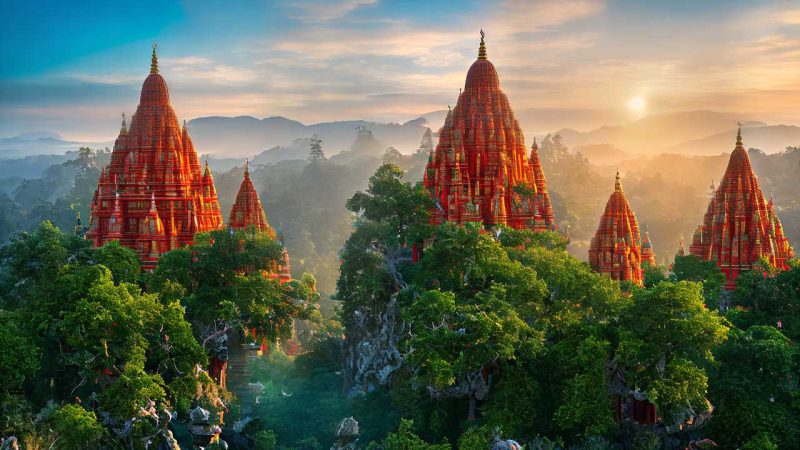Ranking the Omnipotent The Most Powerful Hindu Gods
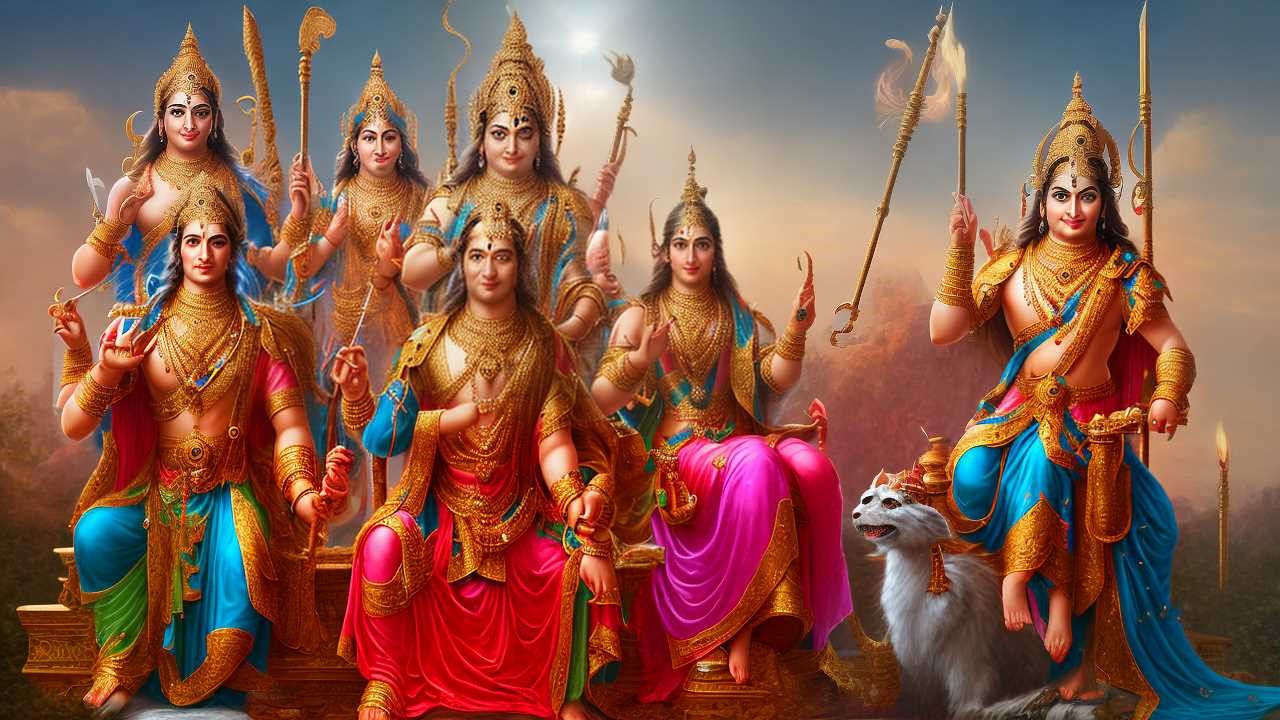
In Hindu mythology, there are many gods, each with their own special powers and roles. Some gods, like Brahma, Vishnu, and Shiva, are known for being extremely powerful. They are often called the ‘trinity’ because of their high status. On the other hand, goddess Kali is known for her strong and mysterious powers. When we talk about which god is the most powerful, it’s not just about who is strongest. It’s also about the stories and ideas that make up Hindu beliefs.
Let’s take a closer look at these gods. Brahma is the creator, making him very important in the universe’s beginning. Vishnu is the protector, keeping things in order, which is essential for balance. Shiva is the destroyer, but this is also a way of making room for new creation, showing that ending things can be just as important as starting them. Kali, with her fierce energy, reminds us that power can also come in the form of protection and fierce love.
Deciding who is the most powerful is tricky. It’s not like picking the best movie or the tastiest food. It’s about understanding the deep meanings behind these gods and what they stand for. Each god has a special place in the stories and prayers of the people who worship them, and that’s what really matters.
In a friendly chat, you might say that just like superheroes, these gods have their own fan base. Whether you’re amazed by Brahma’s ability to create, Vishnu’s role as a superhero keeping the universe safe, Shiva’s power to transform through destruction, or Kali’s fierce spirit, they all have something to teach us. It’s not about who’s at the top of the list; it’s about the rich stories and lessons they bring to our lives.
Unveiling the Trinity’s Apex
In Hindu beliefs, three main gods are very important – Brahma, Vishnu, and Shiva. They are like the top bosses of the religion, each looking after different parts of the world.
Brahma is the god who starts everything, creating the universe and all living things. People often show him with four heads and sitting on a lotus flower, to represent his creative power.
Vishnu keeps the universe safe and in good order. He’s shown with special items like a discus and a shell, which stand for his protection.
Shiva’s job is to end things when it’s time, but this allows for new beginnings. He’s often seen with a three-pointed spear and is part of the process of change and renewal in the world.
These gods are really important to Hindus because they show the idea that everything in life has a beginning, a time to grow, and an end, but then it starts again. This cycle is like the world’s heartbeat, with everything being born, living, and then being born again in a different way. These gods help people understand that change and continuity are part of life.
The Mighty Shiva’s Domain
In the Hindu religion, many gods exist, but Shiva is one of the most powerful. People call him ‘Mahadev,’ which means the greatest god. He doesn’t only destroy things; he also represents living a simple life, focusing deeply, and enjoying arts like music and dance. Shiva has a fierce side too, shown by his connection to Rudra, the storm god. This side of him is about protecting and being strong. Shiva’s dance, called the Tandava, is very important because it shows how the universe is always changing and moving.
Shiva is part of a group of three main gods, known as the Trimurti. The other two are Brahma, who creates things, and Vishnu, who keeps things going. Shiva’s job is to make sure that when something ends, something new can begin. This helps keep everything in the world in a good balance. It’s like how in nature, when winter ends, spring brings new life.
Shiva’s role is essential because he makes sure life can keep going on, even after something ends. Without this balance, life would not work as it does. It’s like when a garden gets too crowded, and you need to prune some plants to help the others grow better.
Vishnu’s Cosmic Influence
In Hindu beliefs, Vishnu is very important because he keeps everything in order. He is one of the main gods and is known for protecting the world. Vishnu sometimes comes to Earth in different forms, known as avatars, to fix big problems and make sure things are fair and right. These ten main forms, called Dashavatara, show up at key times to make sure the balance of the world is maintained.
Vishnu’s actions are more than just stories; they shape how people in Hindu culture think and live. He is seen as all-powerful, and each of his avatars has a role in the big picture of life. They teach about dharma, which is the idea of living in a morally good way.
For example, one of Vishnu’s avatars is Rama, who is the hero of the epic ‘Ramayana.’ Rama shows the importance of being brave and doing the right thing, even when it’s hard. Another avatar, Krishna, from the ‘Bhagavad Gita,’ teaches about doing your duty and being devoted.
These stories and teachings from Vishnu’s life are not just important for understanding Hindu tradition; they also offer guidance for everyday living. They encourage people to be good and to keep the world in balance by following dharma.
Brahma’s Creative Force
Vishnu is known for keeping everything in order, but Brahma is just as important because he started it all. In Hindu stories about the world, Brahma is the one who made everything. He’s a big deal in the group of three main gods. Pictures show him with four heads, which means he can see everything he needs to when making the universe. In his hands, he holds special things that show different parts of making things. The holy books he has, the Vedas, show that he’s super smart and knows a lot, which he used to make everything.
Even though he’s a key figure, not as many people worship him as they do Vishnu or Shiva. This tells us something interesting about how people in the Hindu faith honor the idea of making new things but don’t always make a big deal about it in the same way.
Let’s talk about Brahma in a way that feels like a chat. He’s like the universe’s big architect, using his vast wisdom, as seen in the sacred texts he’s got, to get the job done. It’s a bit funny though – despite being the head honcho of creation, he doesn’t get as many shoutouts as his buddies Vishnu and Shiva. It’s like throwing the biggest party but not getting the high-fives. But that’s the way it is – in Hindu traditions, starting the show is cool, but keeping it running smoothly or putting on a grand finale gets more cheers.
The Dark Energies of Kali
Looking at the Hindu goddess Kali, we see she’s all about change and facing tough times. She’s shown as a scary figure, but that’s because she’s about getting rid of bad things and helping people move past their fears. Kali reminds us that everything comes and goes, and we have to be ready for change. She’s like a symbol for standing strong and finding the good in tough situations.
Kali teaches us that change can be a good thing, even when it feels scary. She’s not about causing harm; her scariness is there to help us let go of what’s holding us back. It’s like when you clean out your closet – you might get rid of things you’re attached to, but in the end, you have a nice, clean space. That’s kind of what Kali’s about. She shows us that even when life throws us curveballs, we can handle it and come out stronger on the other side.
Conclusion
Hinduism has many gods, but some are incredibly powerful. The most important ones are the Trinity: Brahma, Vishnu, and Shiva. Brahma is the creator of the universe, Vishnu keeps things running smoothly, and Shiva takes care of ending things when it’s time. This helps everything in the world work in a cycle, like the seasons.
Another powerful god is Kali. She represents time and big changes, and she’s in charge of the scarier side of things. By looking at what these gods do and what they stand for, we can learn a lot about Hindu beliefs. They show us how different parts of the world and life are connected and why each part matters.
For example, stories about Vishnu often show him coming to Earth to fix problems. This tells us that Hindus believe in a god who is actively involved in making sure the world stays in balance.
In everyday language, these gods help us understand that life has a rhythm and a reason. And just like a book needs a beginning, middle, and end, the world needs creators, caretakers, and those who can end things. That’s what Brahma, Vishnu, and Shiva do. And just like change can be scary but necessary, Kali reminds us that even the tough times have a purpose.
So, Hinduism teaches us that everything has its place and time, and these gods are examples of that big idea.

